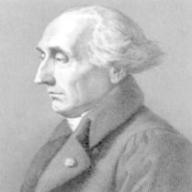在兩塊金屬之間加上電壓,而金屬之間是真空的,金屬上的自由電子會由負極抵達正極嗎?
如果金屬之間是空氣又會怎樣呢?
(conf)金屬的自由電子會在真空中加速嗎?
2012-08-11 10:04 pm
回答 (1)
2012-08-12 12:49 am
✔ 最佳答案
Q: 在兩塊金屬之間加上電壓,而金屬之間是真空的,金屬上的自由電子會由負極抵達正極嗎?A: In theory, free electrons from the cathode could be attracted and accelerated to the anode. But, depending the separation between the two charged plates (cathode-anode separation), the applied voltage needs to be extremely high. It is because there is strong attractive coulomb force between the surface free electrons and metal ions left on the cathode. The applied high voltage has to overcome this strong attractive force.
In fact, such arrangement is similar to the structure of an X-ray tube (that with a cold cathode). High voltage applied between the two electrodes (cathode and anode) accelerates free electrons from the cathode to anode.
[Be aware that in a practical x-ray tube, the cathode is normally heated at a temperature to facilitate the emission of free electrons].
Q: 如果金屬之間是空氣又會怎樣呢?
A: AIr in between the metal plates tends to decrease the electric field set up by the applied voltage, thus lowering the force that acts on the free electrons. A even much higher voltage is therefore required in order to bring the electrons out from the surface of the plate.
收錄日期: 2021-04-29 18:03:43
原文連結 [永久失效]:
https://hk.answers.yahoo.com/question/index?qid=20120811000051KK00311

